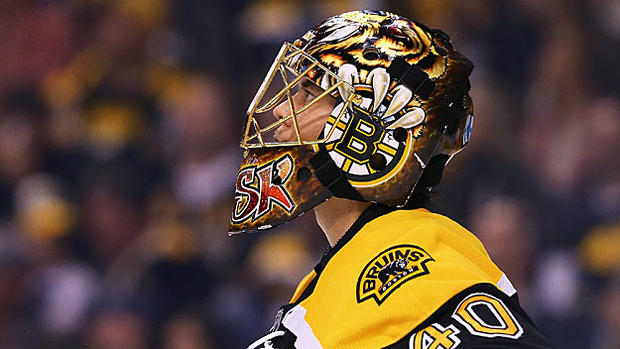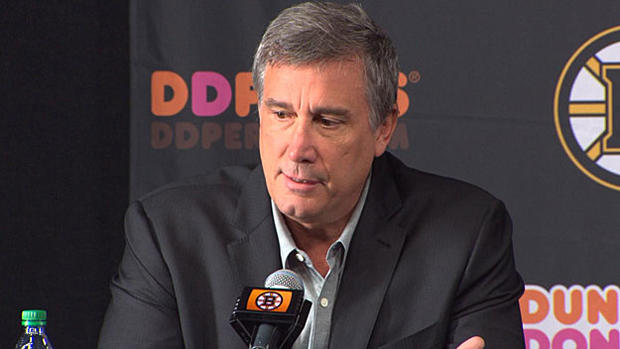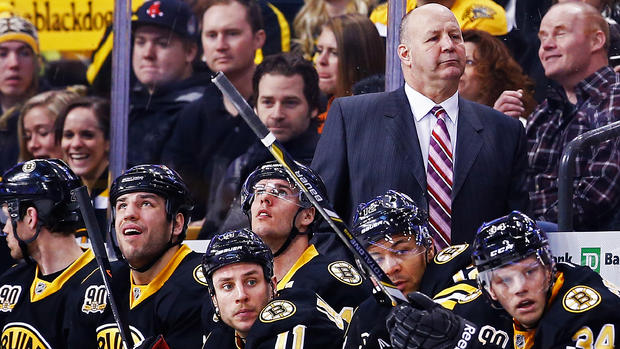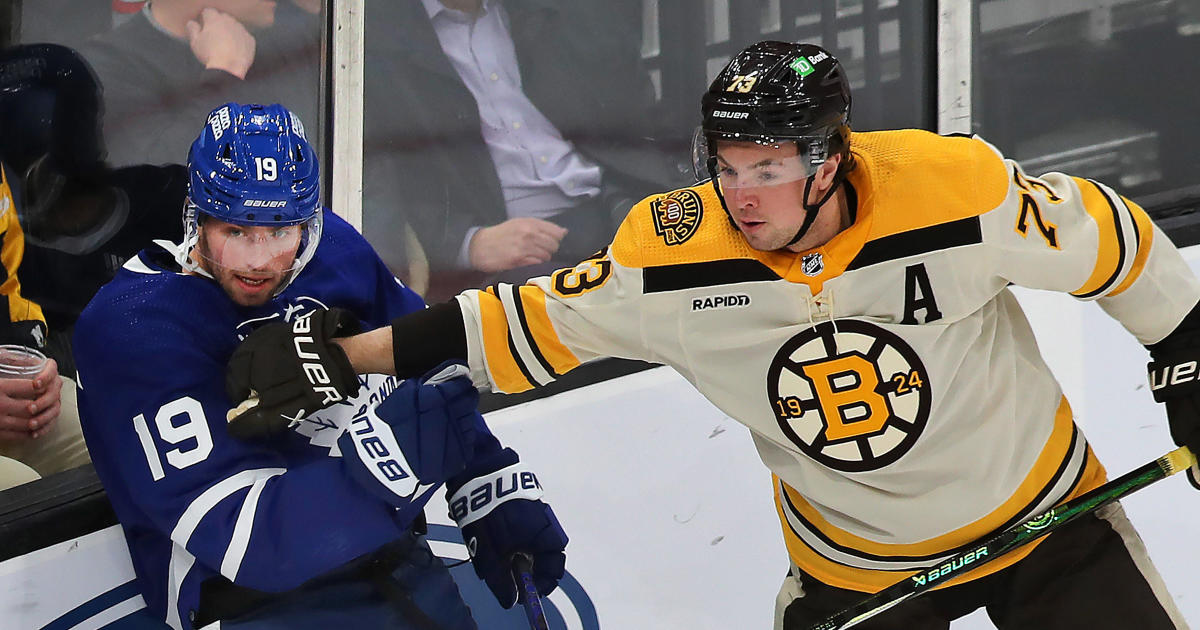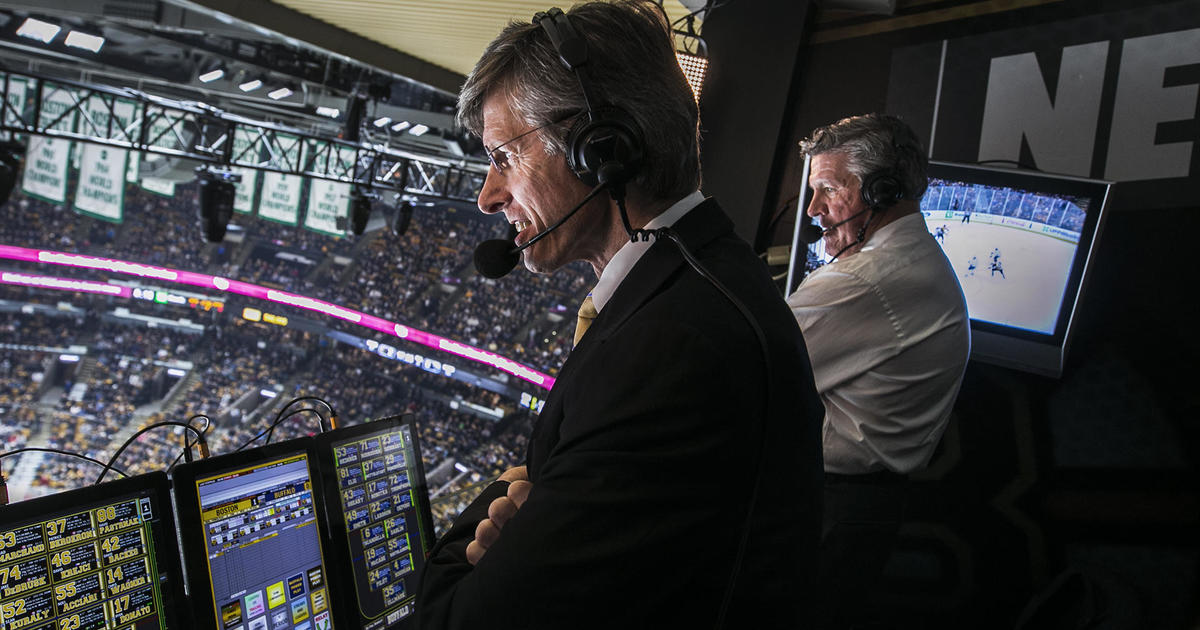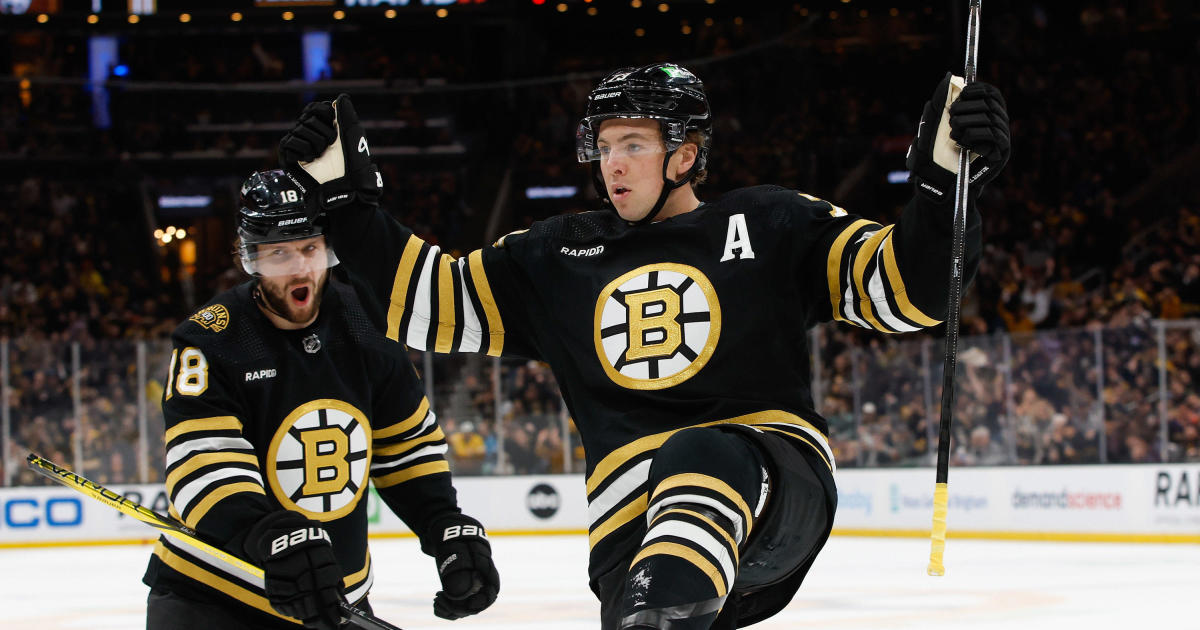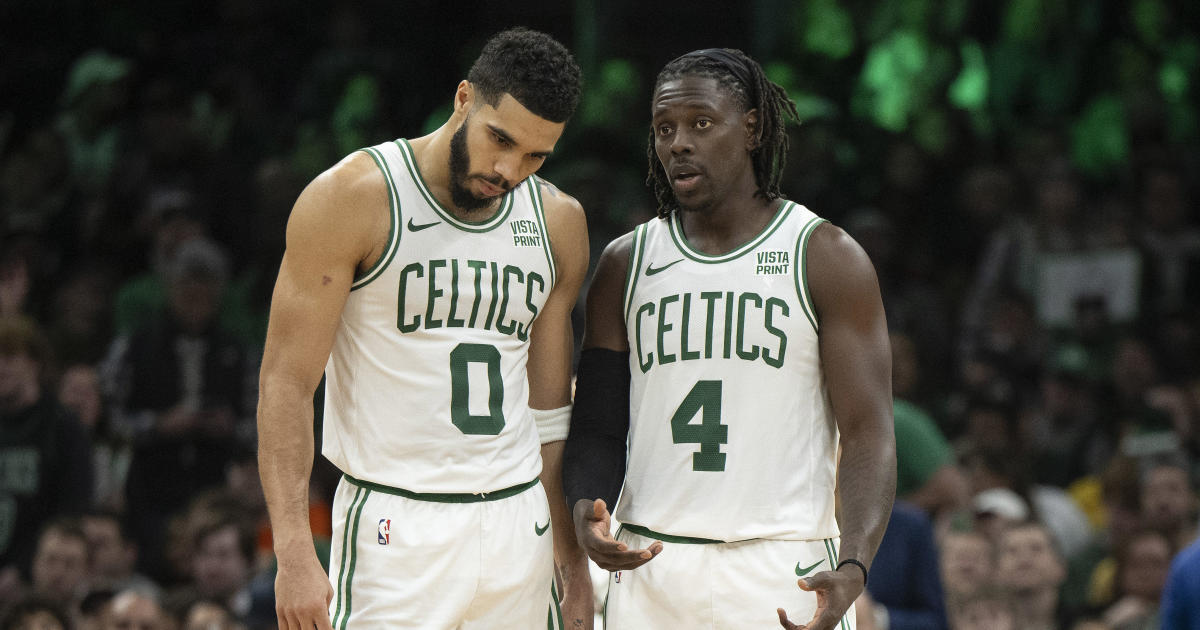Don't Blame Just One Guy: This Bruins Collapse Was A Team-Wide Systemic Failure
By Matt Dolloff, CBS Boston
BOSTON (CBS) -- The first major warning sign came at the embarrassment of the Winter Classic. A great fear manifested itself over the next three months-and-change, slowly realizing what crept into the consciousness of Boston Bruins fans as the 2015-16 season wore on: this Bruins team did not have what it takes to make any kind of playoff run, and they may bow out before the postseason even starts. Again.
Now that the fear has become a reality, it has come time to play the proverbial Blame Game, to point your finger in the direction of the perceived culprit. To sharpen the pitchforks and light the torches, waiting for the perpetrators to emerge from their homes or hiding spots - in this case, the TD Garden locker rooms and offices. After a dumpster-fire such as the 6-1 drubbing at the hands of the non-playoff-bound Ottawa Senators, fury and scrutiny is a natural human reaction.
The mistake that tends to be made, however, on both sides of the equation, is that the blame boils down to one man, or one group of people. The Bruins' collapse was systemic, a top-to-bottom breakdown that doesn't provide easy answers or create easy decisions for the Jacobs family. It's important not to foist the blame on a single person or thing.
Don't blame just goaltender Tuukka Rask, who conspicuously no-showed the decisive final game of the season against Ottawa. No. 40 undoubtedly had a down year by his standards and mostly failed to compensate for a weak defense in front of him with big, timely saves. Rask had no control over how the defense played in front of the net, or the personnel decisions that put the defense before him in the first place.
Don't blame just the Bruins defense, who proved to be the team's Achilles' heel on the ice all season. It's not captain Zdeno Chara's fault that he was forced to play No. 1 defenseman-level minutes despite slowing down as the season progressed and glaringly declining at age 38. It's not the fault of Torey Krug, Adam McQuaid, Kevan Miller, Joe Morrow, and others that they had to play the minutes and matchups of top-four (sometimes top-two) defensemen in the wake of the team's roster-building decisions, in turn forcing more offensive production.
Don't blame just the Bruins' core of veteran forwards, some of which had career years (Brad Marchand) or produced at or above the level they'd been expected to reach (Patrice Bergeron, Loui Eriksson). Others, like center David Krejci, were hobbled by serious injuries that hampered their production for much of the season. It's hard for any one forward to control how his linemates perform around him, and it's impossible for them to control who the coaching staff lines up next to them in the first place.
Don't blame just head coach Claude Julien, who is the likely scapegoat for this second straight collapse, as is the nature of the business in sports. Julien's biggest achievement this season was respectably transitioning the team to more of an offensive style (fifth overall with 240 goals scored) as a response to the evolution of the league. He more-or-less worked with the lineup given to him from the front office, which ultimately did not field a roster that lived up to the standards of a playoff contender, especially on the all-important back end.
Don't blame just the front office, led by president Cam Neely and general manager Don Sweeney. Left with little wiggle room on the cap and a dearth of talent on defense in the wake of Peter Chiarelli's costly roster mismanagement, the duo had little recourse in how to rebuild the defense on the fly as the team still expected to contend. Neely and Sweeney could not control how the team they put on the ice ultimately played.
Instead of boiling the Bruins' epic collapse to a single factor, lump them all together. A catastrophe like this does not come about from the failures of one person; the problems may start at the top with the likes of Neely and Sweeney, but it trickles all the way to the ice with the failures of the players.
Blame the front office for their subpar player evaluation when it came to the team's new acquisitions. Blame Julien for failing to get the most out of the talent given to him in the biggest moments, which should have yielded at least a good-enough performance to make the playoffs. Julien's over-reliance on statistical analysis and steady-but-unimpressive veterans, eschewing common sense in favor of numbers and essentially waiting until the final week of the season to use the speed and energy of the team's younger talent to contribute, undoubtedly played a role in sinking the team's chances.
Blame the forwards for dropping off the score sheet when it mattered the most; the only goal they scored in the final game against Ottawa could have been called off due to David Pastrnak possibly being off-side. Blame the defense for never getting any better at defending in front of their own net or limiting turnovers. Blame Rask for failing to cover up for these deficiencies, as the league's third-highest paid goalie should be expected to do in a season like this.
The 2015-16 season is packed with moments where you could easily pinpoint who is most culpable. Julien's decision to leave leading goal scorer Marchand on the bench for a crucial shootout against the Carolina Hurricanes, which the Bruins lost. Rask's inability to overcome a stomach virus to play in the most important game of the season. The team's collective ineptitude when it came to finishing scoring chances, especially in games like the loss to New Jersey in which they out-shot the Devils 40-15.
This has led to the inevitable finger-waving at specific people, with many calling for Julien or Neely to be fired, or Rask or Chara to be traded, among other calls to action. The team's many late-season snafus cannot be diagnosed as the deciding factor in the Bruins' implosion. They all worked in confluence with each other.
The hard question that rises from the smoke and ash of this debacle is, what needs to change? When a team that's expected to make a playoff run misses the postseason for a second straight season, major shake-ups are imperative. It could start at the top with the front office, it could start at the bottom with the players, but it will most likely start on the bench with Julien. From there, major personnel changes or additions need to be made to alter the current DNA of the team. Up top, Neely and Sweeney may have a little more leeway than others, but they should not feel comfortable about their own jobs, certainly not moving forward.
The Bruins need a systemic overhaul. There's zero chance the same team and organization that entered the season returns in 2016-17. New faces in high places should pop up in multiple areas. Reality should trump fairness. Necessity should trump consistency. There's no easy way to fix the current situation, which demands change to the level where you look at the Bruins and see a "different team."
Whatever is different next season, something needs to be. If the Bruins want to return to playoff contender status, changes could be coming at all levels of the organization, and it won't happen by blaming any one person.
It will happen by blaming everyone and everything. By blaming the system, from the top down.
Matt Dolloff is a writer for CBSBostonSports.com. His opinions do not necessarily reflect that of CBS or 98.5 The Sports Hub. Have a news tip or comment for Matt? Follow him on Twitter @mattdolloff and email him at mdolloff@985thesportshub.com.
